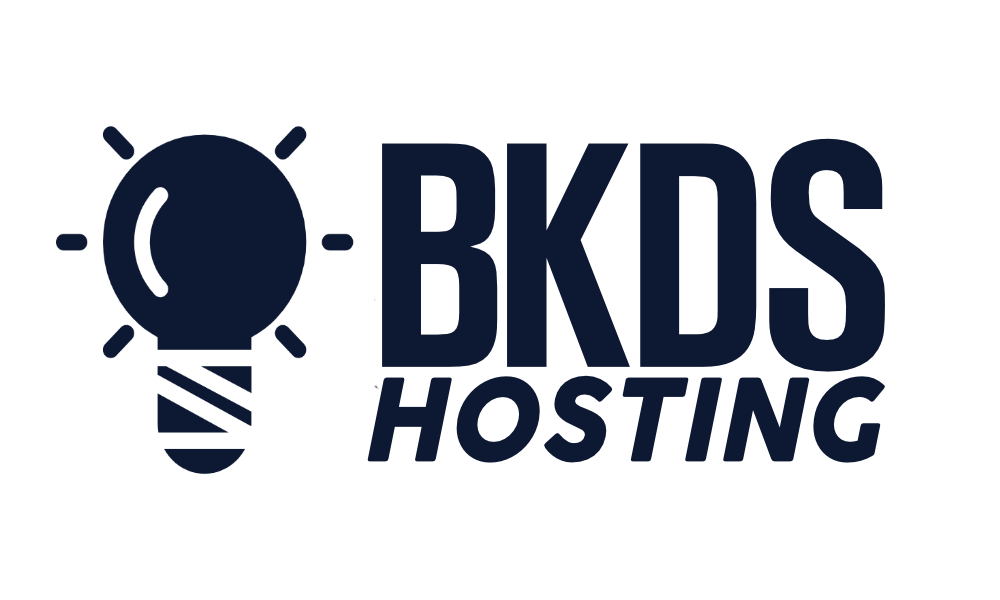In the dynamic world of digital entrepreneurship, the ability to scale your business effectively and efficiently is a critical success factor. One often overlooked aspect of scalability lies in the realm of website hosting. The hosting choice you make can have profound implications on your online business's capacity to grow, manage traffic surges, and deliver an optimal user experience. This discussion will commence an exploration of nine strategic approaches to leverage website hosting for your business's scalability. As we navigate these strategies, we shall unravel how each can be implemented to bolster your business's growth trajectory and resilience in the face of fluctuating demand.
Understanding the Scalability Concept

To comprehend the concept of scalability, one must recognize its significance in handling increasing website traffic, data, and resource demands, while preserving optimal performance levels. Scalability is a strategic, forward-thinking approach to web management, designed to accommodate growth and adapt to changing needs. It is a pivotal concept in scaling your website to ensure optimal performance, even during traffic surges, consequently maximizing revenue potential.
Understanding the scalability concept involves more than appreciating its importance; it also requires a deep dive into user behavior, security, and technology integration. By analyzing user behavior, one can predict potential growth areas, enabling proactive scaling strategies. Prioritizing security ensures that as your website grows, it remains protected against emerging threats. Furthermore, integrating innovative tools and technologies can streamline the scalability process, making it seamless and efficient.
Choosing the right website hosting plan is crucial to business scalability. Your host must offer a scalable web infrastructure, capable of growing with your business without compromising performance. With the correct understanding and application of scalability principles, businesses can navigate the digital landscape with agility, ensuring their websites are always primed for growth.
Importance of Website Hosting
The critical role of website hosting in business scalability cannot be overstated. The essentials of website hosting and the strategic selection of a hosting provider significantly influence the speed, uptime, and overall performance of a website. Therefore, it is imperative to examine these factors in depth, as they directly impact business scalability.
Website Hosting Essentials
Paving the way for a successful online presence, understanding the essentials of website hosting is of paramount importance as it not only ensures your website is visible on the internet, but also significantly impacts its performance, speed, and uptime.
- Server Load: Choosing a hosting plan that can handle your projected web traffic is crucial to maintain functionality during peak times.
- Scalability: As your business grows, your hosting needs will change. Select a hosting plan that offers the flexibility to scale as needed.
- Performance: Slow page load times and frequent downtime can drive visitors away. Your chosen hosting plan should ensure optimal performance.
- Budget: While it's important to invest in a robust hosting plan, it's equally vital to find a solution that fits within your business budget.
Selecting Your Hosting Provider
Having grasped the essentials of website hosting, it becomes imperative to carefully select a hosting provider, a crucial decision that can significantly influence your website's performance, scalability, and overall online success. Choosing the right hosting provider hinges on a variety of factors, including the hosting service's reliability, uptime, support, and the range of hosting services it offers. The hosting provider that offers an array of web hosting solutions can cater to your business needs more effectively. Your chosen hosting plan should align with your business's growth plans, facilitating seamless scalability. A comprehensive, tech-savvy approach to selecting your hosting service can yield significant dividends, providing the technological foundation your business requires to innovate and thrive in today's digital landscape.
Impact on Business Scalability
In the realm of online business, website hosting serves as a pivotal factor, directly influencing the scalability of your operations, highlighting its critical role in facilitating growth and optimizing performance. Here are four ways in which website hosting impacts business scalability:
- Performance and Speed: Web hosting directly impacts the performance and speed of a website, which influences user experience and subsequently, business growth.
- Traffic Surges: Scalable hosting allows your website to handle traffic surges efficiently, ensuring consistent performance.
- Resource Allocation: Hosting strategies determine resource allocation, affecting the ability to scale.
- Infrastructure: The right hosting provider supports business scalability with robust infrastructure and best practices.
The impact on business scalability through website hosting is profound, necessitating careful selection and strategic planning.
Identifying Scalability Requirements
As we move forward in our exploration of website hosting's impact on business scalability, it is critical to understand the importance of identifying scalability requirements. This involves assessing your current hosting needs, analyzing traffic patterns, and projecting future growth to ensure your infrastructure can accommodate increased demand. These factors will help you develop a robust, scalable hosting strategy that maintains performance while managing costs effectively.
Determining Hosting Needs
To effectively scale your business, a thorough understanding of your website's resource needs – including storage, bandwidth, CPU, and RAM – is crucial for identifying the most appropriate hosting plan. Determining hosting needs is a critical step towards achieving business scalability through superior website hosting.
- Scalability is a critical feature of your hosting plan, allowing flexible adjustment of resources based on demand.
- Reliability is paramount. Choose a hosting plan with high uptime guarantees and robust servers to support future growth.
- Support should be a non-negotiable feature. Opt for providers offering round-the-clock assistance.
- Cost-effectiveness matters. Ensure the chosen plan offers value for money, aligning with your budget and scalability requirements.
Informed decisions today fuel innovation and growth tomorrow.
Analyzing Traffic Patterns
Leveraging website analytics tools to track and interpret traffic patterns plays a pivotal role in identifying your website's scalability requirements. By monitoring fluctuations in web traffic and analyzing traffic patterns, online businesses can anticipate scalability needs. Peak traffic times and user behavior offer useful insights into scalability demands.
Performance bottlenecks and resource limitations can be identified through meticulous analysis of website traffic. Historical traffic data enables forecasting of future scalability requirements, allowing for proactive adjustment of hosting resources. Thus, understanding and analyzing web traffic patterns becomes invaluable in scaling your online business. Ultimately, strategic use of website traffic data can drive effective scalability, ensuring your website remains performant and responsive even as your business grows.
Future Growth Projections
Building on the insights gained from analyzing traffic patterns, it becomes critical to project future growth and identify scalability requirements, taking into account factors such as user base, anticipated traffic, and the current technology stack. This process involves strategic planning, with scalability in mind, to ensure the seamless functionality of your website.
- Regularly monitor and analyze website traffic and server performance to predict future growth projections and plan for concurrent users.
- Evaluate your current technology stack, ensuring it can support business scalability and handle an increase in demand.
- Utilize website hosting solutions that are flexible and scalable, capable of accommodating growth.
- Always plan for scalability, considering user experience, performance optimization, and cost-efficiency. These strategies will ensure your business stays agile, innovative, and prepared for future expansion.
Choosing the Right Hosting Plan
Navigating the labyrinth of website hosting plans requires a clear understanding of your website's needs and budget, taking into account critical factors such as resources, scalability, uptime, support, and price for effective scalability. This process of choosing the right hosting plan is pivotal in ensuring your website can handle increased traffic as your business scales.
Your Website Needs should guide your selection, with considerations given to the type of web applications you run, the expected user base, and the anticipated growth. A flexible web hosting plan will offer scalability, allowing for seamless expansion as demand increases. Resources and uptime guarantee are crucial for maintaining a robust online presence, while efficient and tech-savvy support can be indispensable in solving potential issues.
Price, although important, should not be the sole determining factor. A cheaper plan might not provide the necessary resources for scaling, leading to performance issues down the line. An investment in a more robust hosting plan can pay dividends by ensuring your website remains functional and accessible, even under the strain of increased traffic. Always remember, the right hosting plan is a strategic step towards scalable business growth.
Leveraging Content Delivery Networks

As your business evolves and scales, making effective use of Content Delivery Networks becomes a strategic necessity to maintain optimal website performance and user experience. The smart integration of these networks into your website design is a tech-savvy move that can enhance your business's scalability.
- Content Delivery Networks (CDNs) significantly reduce latency by distributing your website content across multiple servers worldwide. This ensures that frequently accessed data is delivered swiftly to users, providing a seamless user experience.
- Leveraging Content Delivery Networks can help manage traffic surges. By delivering content from the nearest server to the user, it takes a load off your primary server, improving its performance and stability.
- CDNs optimize your website by caching static content like images and videos, which are then quickly delivered to users. This can drastically improve site load times.
- Using a CDN provides a reliable and efficient content delivery infrastructure, which is crucial for business scalability. It ensures fast and reliable access to your website, regardless of the user's geographical location.
Implementing Caching Techniques
To further enhance website performance and scalability, businesses should consider implementing caching techniques, a cost-effective strategy that significantly reduces server load and improves site speed. In today's digital world, the efficient delivery of digital content is critical, yet load times can be a significant barrier to user engagement with online services.
Caching is a powerful tool for addressing this issue. By temporarily storing frequently accessed data, caching can reduce server load and accelerate website performance. This is especially beneficial for businesses that experience high levels of site traffic, as it allows for improved scalability without significant infrastructure investment.
From a technical perspective, there are several types of caching that businesses can leverage. Browser caching, for instance, stores static resources on the user's device, reducing the number of server requests and enhancing user experience. Server-side caching, including object and database caching, can further optimize website responsiveness.
Given the competitive nature of the online space, any delay in load time can be detrimental. Implementing caching techniques can therefore be a game-changer, enabling businesses to deliver seamless online services, improve user satisfaction, and stay ahead in the digital race.
Optimizing Media for Speed

While caching techniques significantly enhance a website's performance and scalability, another critical aspect to consider is optimizing media for speed. This is a key factor in reducing load times and enhancing user engagement. Unoptimized media can significantly slow down your site, affecting user experience and your website's performance.
- Compress and Optimize Images and Videos: Large, uncompressed digital content can significantly slow down your site. Compressing and optimizing your images and videos reduces loading times and bandwidth usage, thus improving your website's speed and performance.
- Utilize Lazy Loading: This technique optimizes the loading of images and videos by deferring the loading of off-screen media. It prioritizes content above the fold, ensuring your site loads quickly and efficiently.
- Implement Responsive Design: Ensure your media adapts seamlessly to various devices and screen sizes. This not only enhances user experience but also avoids unnecessary load times on smaller or larger screens.
- Leverage Next-Gen Image Formats: Using formats like WebP enhances visual quality while reducing file sizes. This leads to faster loading times and a more engaging user experience.
Monitoring Traffic and Performance
In the realm of business scalability, vigilantly monitoring your website's traffic and performance is an indispensable strategy for identifying potential areas of improvement and ensuring optimal user experience. The foundation of this approach lies in leveraging the website hosting capabilities to manage traffic without compromising on performance.
Monitoring traffic and performance enables an astute understanding of the number of users interacting with your site, the peak usage times, and the pages they frequent. This information is invaluable in making data-driven decisions to enhance your site's effectiveness and user engagement.
Further, it provides insights into resource usage. If your website is consuming more resources than necessary, it could result in slower load times, negatively impacting user experience and search engine rankings. By identifying such bottlenecks, businesses can optimize resource utilization for enhanced performance.
Moreover, this monitoring aids in predicting scalability requirements. With the growth in the number of users, your website hosting needs will expand. Regular monitoring allows you to anticipate these changes, ensuring your hosting can scale seamlessly with your business.
Avoiding Common Scalability Mistakes

Building on the importance of vigilant traffic monitoring and performance analysis, it becomes equally crucial to address and circumvent common scalability mistakes that could potentially impede your website's growth and performance. Implementing the best strategies for business scalability through website hosting requires a keen understanding of these pitfalls.
- Under or Over-Provisioning: Incorrectly estimating your website's resource needs can lead to sluggish performance or wasted resources.
- Lack of Auto-Scaling: Without this, your website may not handle sudden traffic surges effectively, leading to service disruptions.
- Inadequate Performance Monitoring: Neglecting regular analysis of website performance can prevent early detection of scalability issues.
- Inefficient Database Structures: Unoptimized queries and table structures may result in slow load times as your data increases.
Avoiding common scalability mistakes is not merely about prevention but also about proactive innovation. Invest in a reliable, scalable hosting service to support your website's growth. Remember, the road to business scalability is paved with strategic planning, continuous monitoring, and constant optimization, ensuring your website can scale seamlessly with your business growth.
Conclusion
Implementing these strategies can significantly enhance business scalability through website hosting. By choosing the right hosting plan, optimizing media, and regularly monitoring traffic, businesses can ensure their websites can handle increased demand and growth. Prioritizing user experience and robust security measures are critical in maintaining website integrity. Thus, understanding and applying these tactics offer a pathway to successful scaling, ensuring businesses can adapt to the ever-evolving digital landscape.

